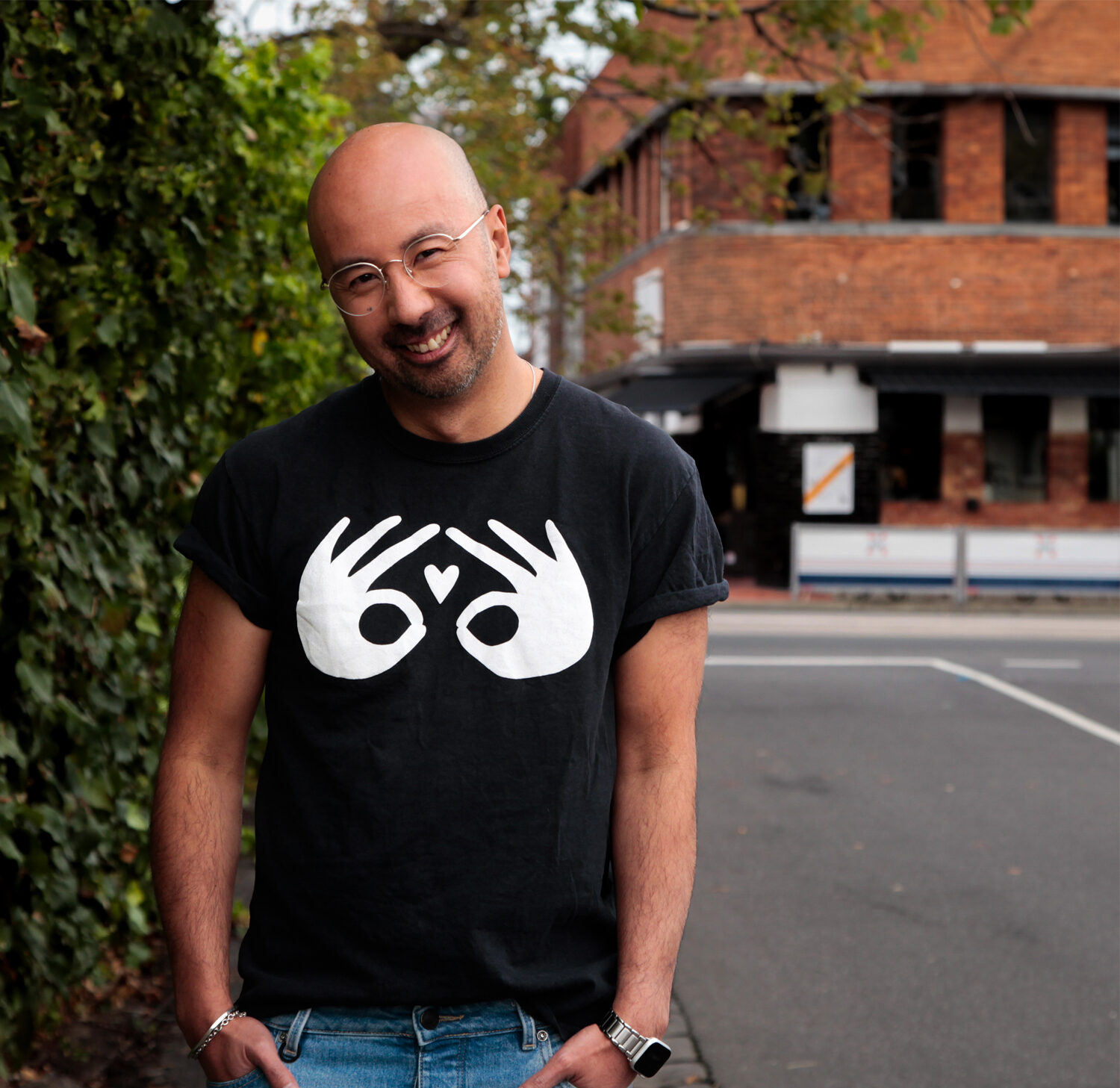Sang | Collingwood | Cambodia
After moving to Australia to escape the Cambodian war, Sang laments losing part of his cultural and linguistic identity to assimilate into Australian culture. Sang shares about straddling the worlds of being Asian and being queer – and chasing the gay ideal of what bodies and minds ‘should be’.
Watch
Read Sang's Story
8:00
My name is Sang, my pronouns are he/him. I speak English and Teochew Chinese.
I’m Chinese-Cambodian. My family came to Australia in the eighties as refugees from the Cambodian war. We made our way to Thailand, and eventually to Australia.
I grew up here. I came to Australia when I was very, very young and we grew up in the outer suburbs of Melbourne. Back then there weren’t as many Chinese people or Asian people in my school. In my primary school, there was probably four or five. There was myself and my siblings and there were some others. And I was actually related to one. One of them was my cousin actually.

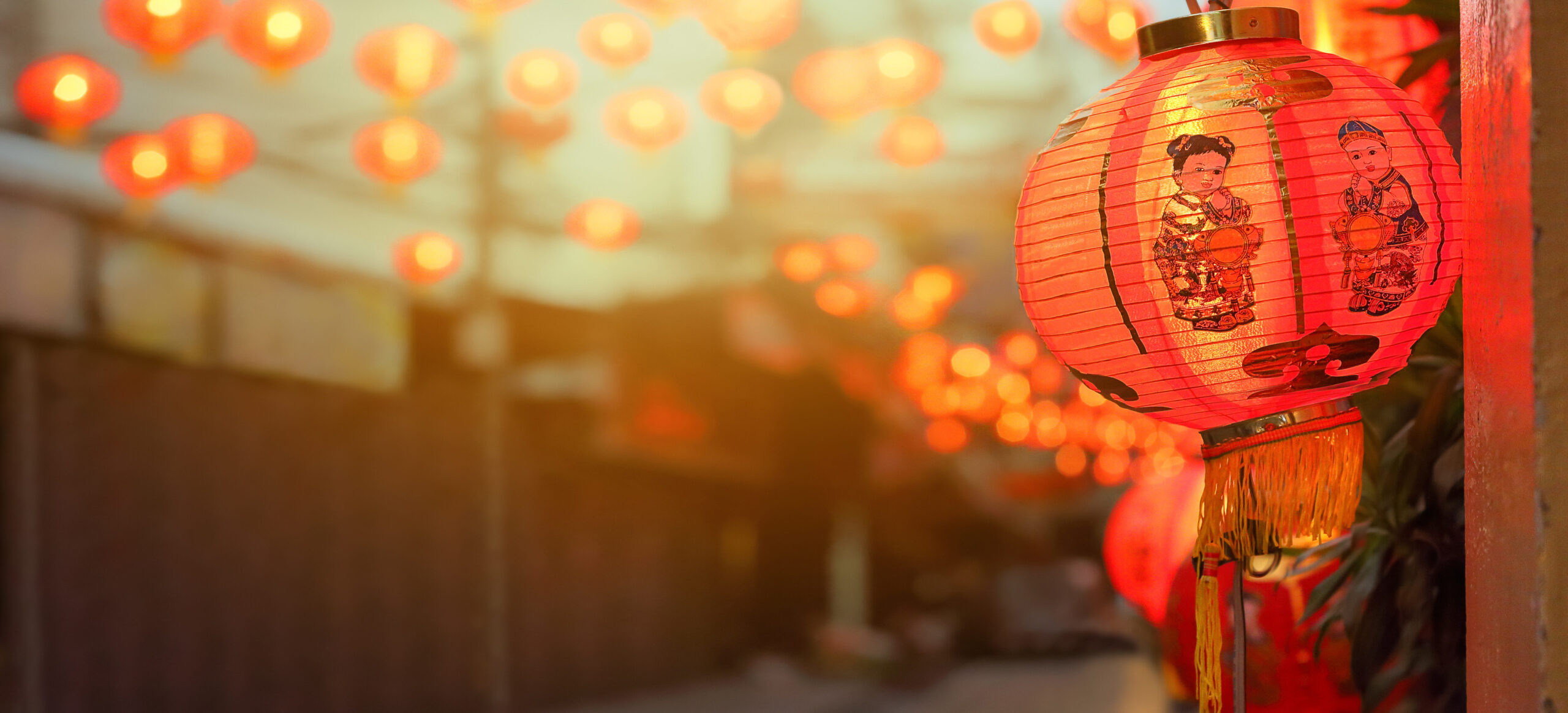
I didn’t have a lot of role models when I was growing up. I have to be honest, we probably faced a little bit of racism as we grew up. It was the time of when Pauline Hanson was becoming particularly prominent. So, there was a time when we didn’t feel we belonged in this country and it made us, I guess, try and fit in. It made us really feel like our place in this country was based on our ability to do that.
When I was growing up, there wasn’t a lot of representation in terms of being queer and being Asian. And so obviously for me, it felt like there was a bit of stigma in relation to the Asian community from being gay or being part of the queer community. What I saw was that the people who were more accepting were white or Western. To some extent, I felt like I had to walk away from my Asian-ness to be able to join a community that embraced my queerness or my gayness.
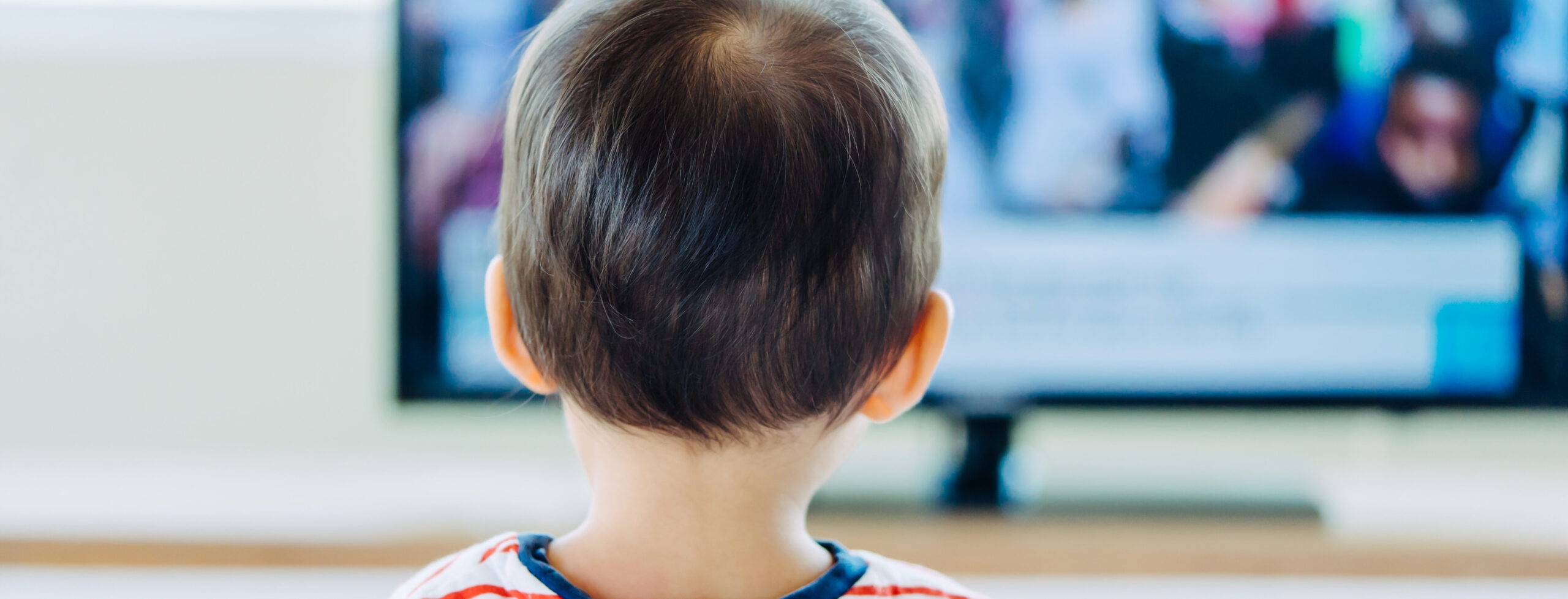
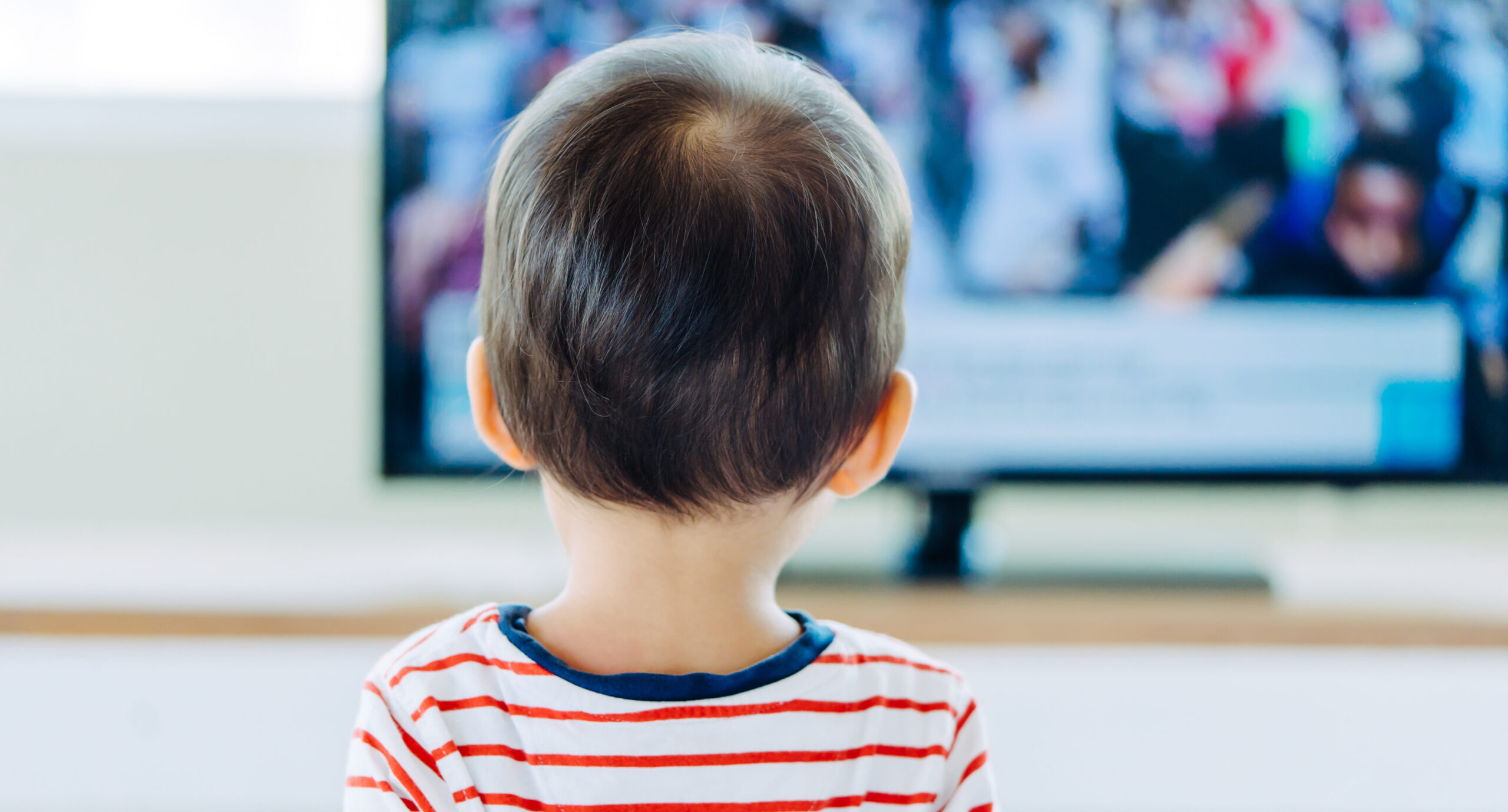
When talking about mental health with my mum, it’s quite difficult because I think my Teochew, the dialect that I speak to her in, is actually not very good. So, I’m actually not able to have a kind nuanced discussion with her about these things, which makes me very sad. It’s not even just talking about my mental health. It’s also talking about my life as a queer man or as gay man. I don’t think I have the vocabulary in Teochew to share those types of experiences with her.
Being queer is obviously not part of her lived experience. But, what I’ve tried to do is to bring a bit more of those two disparate worlds together, my queer friends, gay world, whatever you want to call it, and my family.
Being able to bring those together allows my mum and my family to understand this other world that I’m part of a bit more. To share with them my lived experience where they can meet people and understand, and that there are people who live this way. I guess I hope to maybe remove some of the stigma and also some of the fear of not knowing.
I think growing up with a lack of queer Asian representation I thought that the model of desirability was definitely a certain way that tended to be white, to be muscular and not what I was – being Asian, and being queer.
"I have to be honest, we probably faced a little bit of racism as we grew up"
I definitely think there is racism that is perpetuated to some extent on gay dating apps, if you’re on there, and in the media. I do think there was some internalised racism that I had to process. I didn’t necessarily feel like I was the pinnacle of being attractive because of that. It’s taken me a while to really negotiate that space.
I feel really great about who I am now. I’ve come to a place where I not only accept but really celebrate who I am. Trying to navigate that space between being Asian and being gay, I think I’ve come to realise all the amazing things that have come from that. I think I appreciate where I fit in within the community as well.
My personal journey has involved my mental health being not-so-good at one stage and it’s something that I’ve had to go see a healthcare provider to actually speak about.
Growing up I’ve always thought that thinking about my mind has been something that I’ve had to ‘deal with’ on my own. But, I’ve realised that there are definitely things that you can find, other people to help you, and they might give you a lot insight to help with those things.

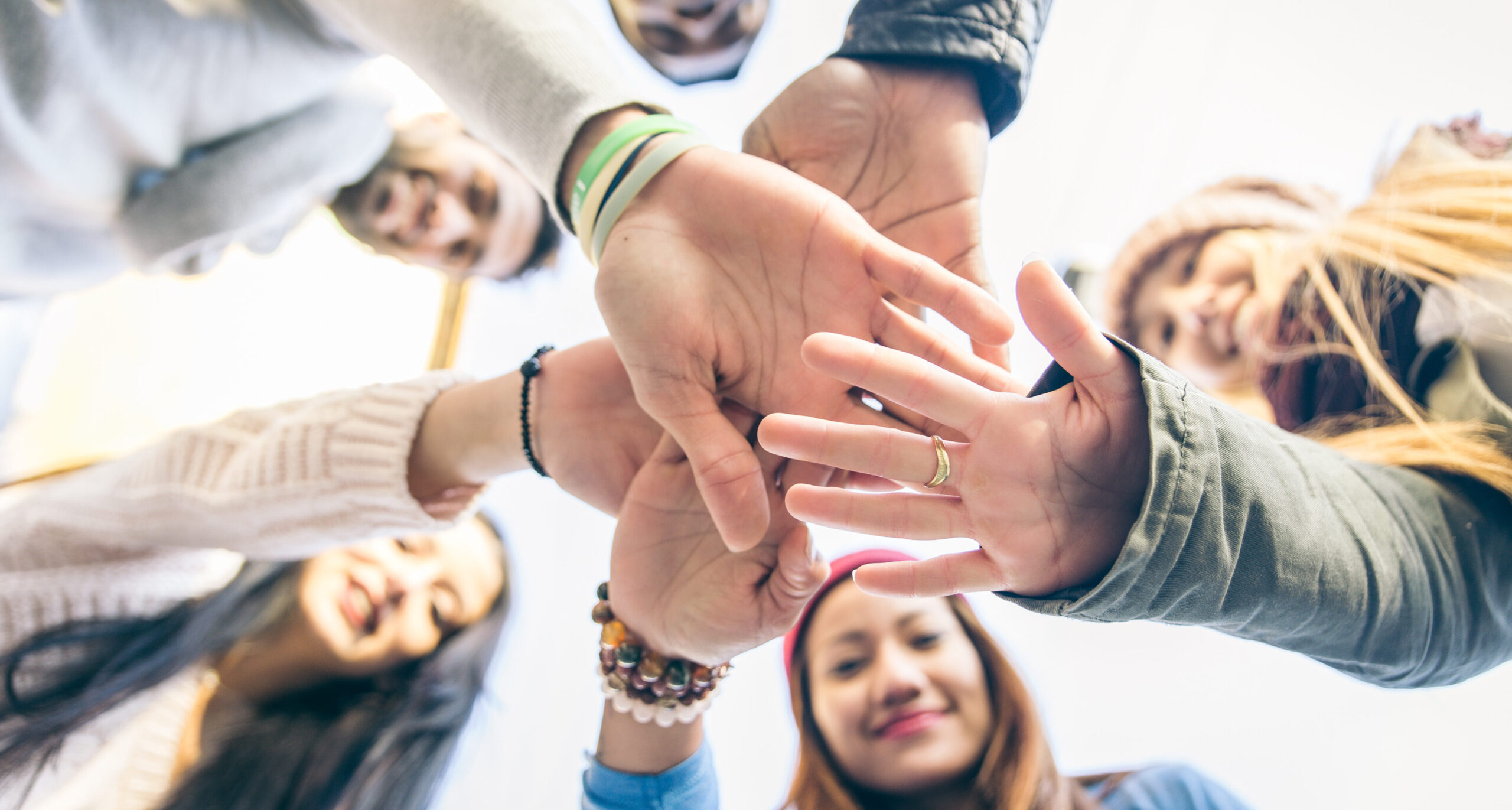
There are definitely things that trigger me not understanding that I’m not doing so well with my mental health. Motivation I think is something that I definitely look out for but I try to overcome a lot of these through things like making sure I see people. I think sport is a big part of what I do. I’m part of an LGBTIQ badminton club and being able to go there and play sport, and also play in an environment that doesn’t involve alcohol.
"It's really allowed me to reconnect with my queerness and combine that with my Asian-ness"
I think a lot of the time when queer people come together or gay people come together there tends to be a lot of drinking or there tends to be a lot of alcohol involved, and this can obviously lead to excessive drinking. I think for me it’s great to be part of a community and in an environment where you’re not just linked through that shared, I guess, community, where it wasn’t just about hooking up or trying to sleep with other people. It was just really for me a great opportunity to go and meet a whole lot of new people that I didn’t know. Also people that I could gradually get to know over time as well.
It was such a structured environment and I could go there every week and eventually I could get to know people. It’s also a really multicultural club and so there’s people from lots of places in the world, particularly Asia. Badminton is very popular in Asia. It’s really allowed me to reconnect with my queerness and combine that with my Asian-ness as well and be able to see lots of examples of how to be Asian and how to be queer or gay or whatever the spectrum might be.

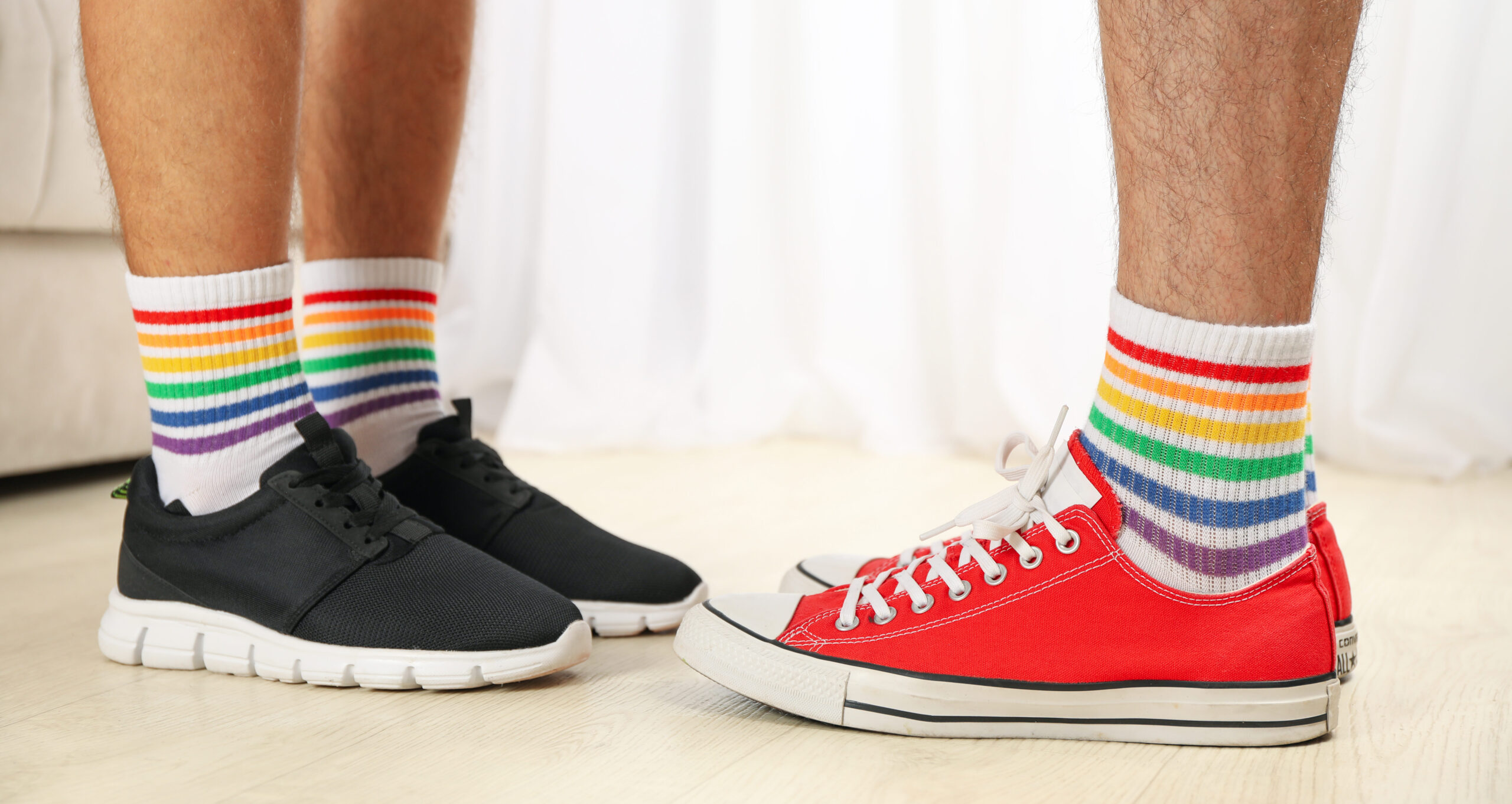
If someone was experiencing negative mental health within the Chinese-Cambodian community and if they were queer, what I’d suggest is, I think it’s really important to find community. I think it’s really important to find the people who actually, I guess, understand you and that could be people who have a shared lived experience. I guess what a lot of people call their chosen family. I know that obviously you’ve got your blood family but then they don’t necessarily understand, I guess, the experiences that you’ve had, specifically those related to being someone queer. I definitely suggest you talk to someone.
I think it’s really important to be able to have people in your life that you trust and that you can actually share things with. Then ultimately I think it’s really important to have a great relationship with your GP or your healthcare provider so that you can have those honest discussions where there’s no stigma around any of those things, and you can get the help that you need if it comes to that.
观看
阅读Sang的故事
8:00
我很小的时候来到了澳大利亚,我们在墨尔本郊区长大。那时学校里没有那么多华人或亚裔。在我读小学的时候,可能只有四五个。除了我和我的兄弟姐妹,还有一些其他的。其中一个实际上是我的表亲。
在我成长的过程中,我没有很多榜样。坦率地说,我们可能在成长过程中遇到了一些种族歧视。那时正是保琳·汉森(Pauline Hanson)变得特别突出的时候。所以有一段时间我们觉得自己不属于这个国家,这让我们试图融入。这让我们真正感觉到,我们在这个国家的位置取决于我们能否做到这一点。
在我成长的过程中,关于酷儿和亚洲人的代表性并不多。对我来说,显然亚裔社区对于酷儿或同志群体存在一些社会偏见。我看到的是,更能接受我的人是白人或西方人。在某种程度上,我觉得我必须远离我的亚裔身份,才能融入一个接纳我的酷儿或同志社群。
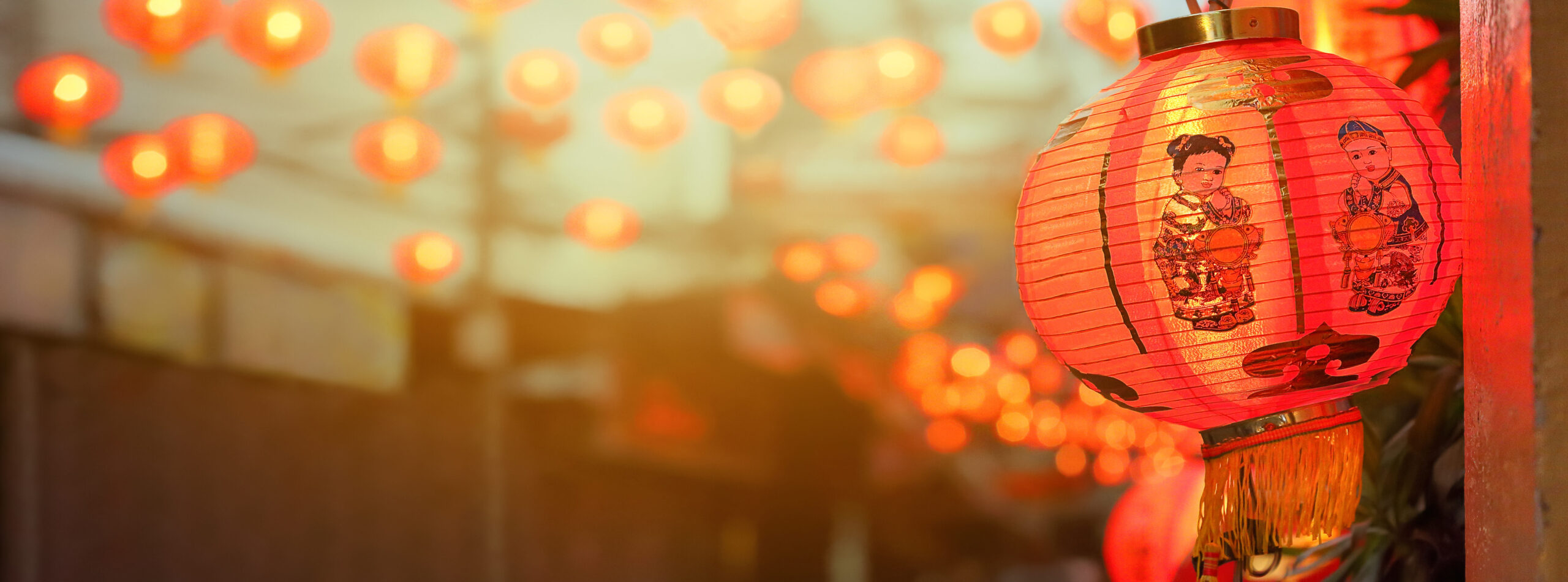
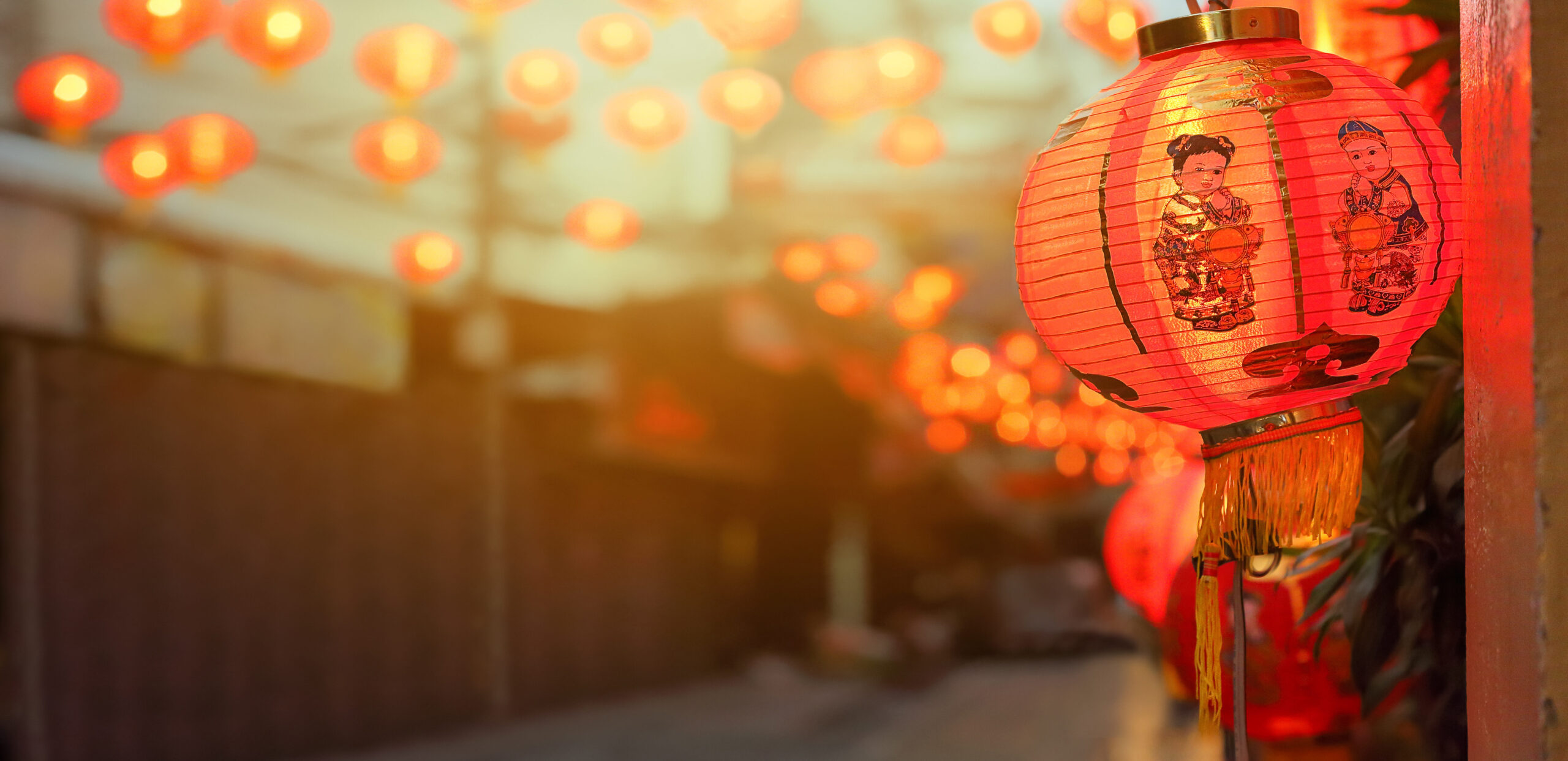
和我妈妈谈论心理健康是相当困难的,因为我和她说的潮州话实际上并不太好。所以,我实际上无法与她就这些事情进行细致的讨论,这让我很难过。这不仅仅是谈论我的心理健康,还包括作为一个酷儿或同志的我的生活。我觉得我没有潮州话中的词汇来与她分享那些经历。
酷儿显然不是她亲身经历的一部分。但我努力要做的是把这两个截然不同的世界联系在一起,我的酷儿朋友,同志世界,无论你怎么称呼它,和我的家庭。
能够把这两者联系在一起,让我的妈妈和我的家庭更加了解我所处的另一个世界。让他们能够见到并理解那些过着这种生活方式的人。我想,我希望能够消除一些偏见,也减少一些不了解所带来的恐惧。
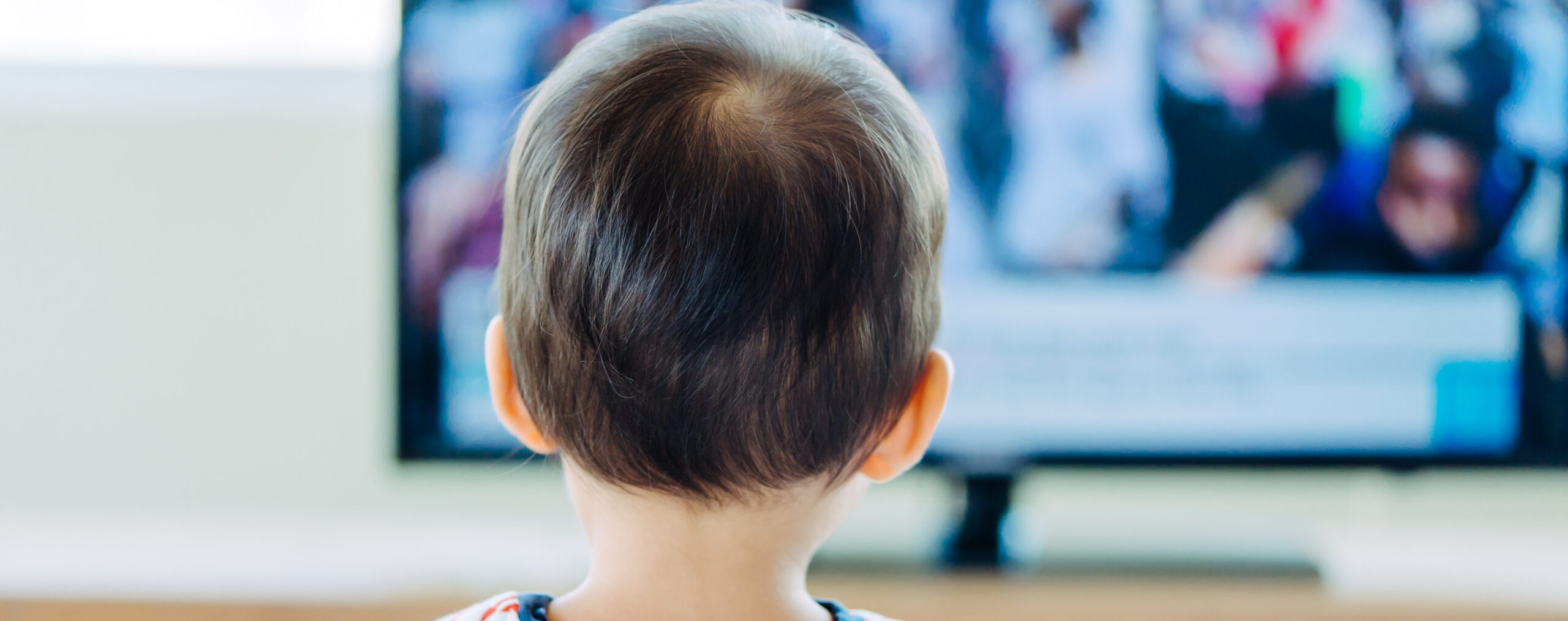
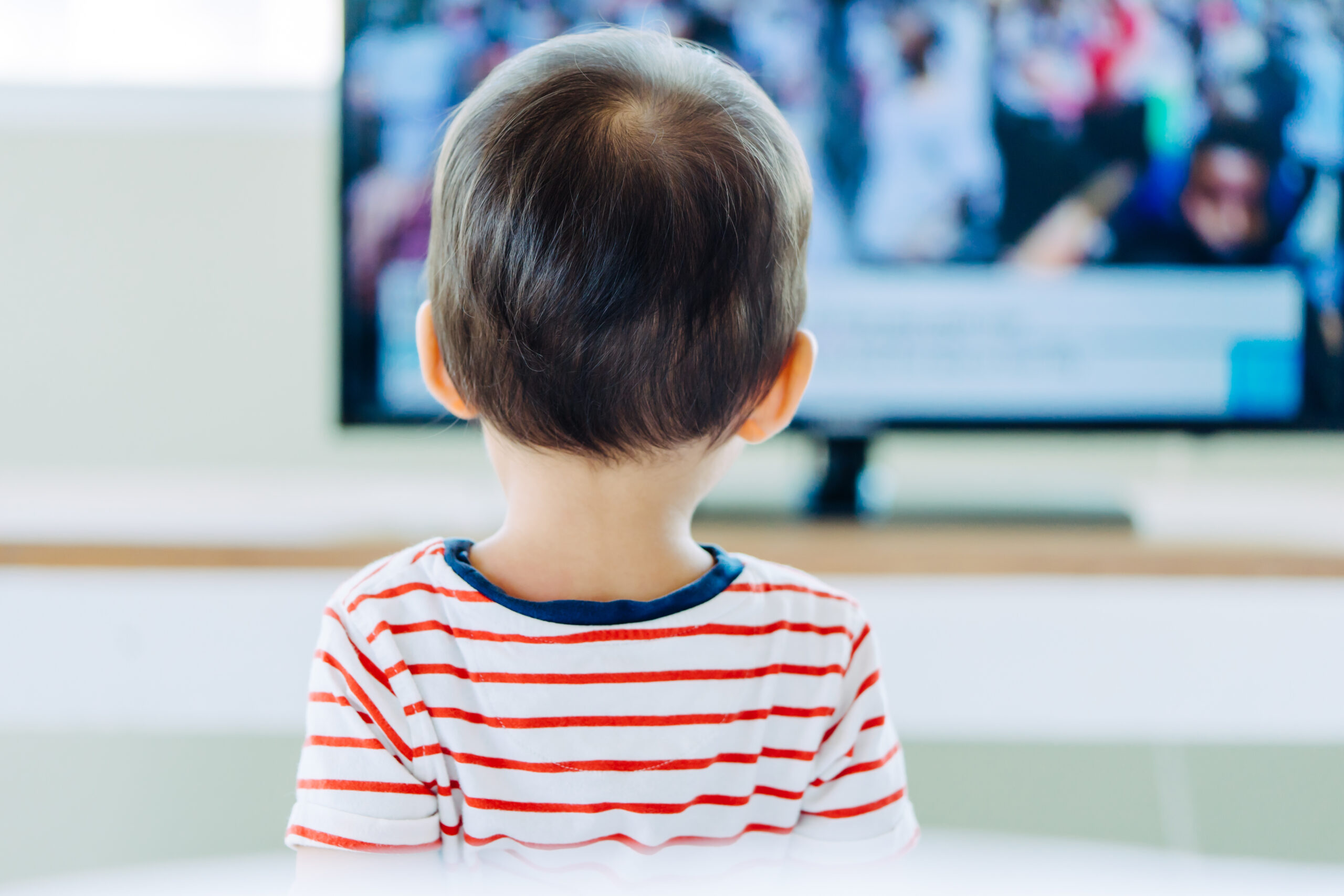
在我成长过程中,由于缺乏酷儿亚裔的代表性,我认为吸引力的模式肯定是某种特定的方式,往往是白人,肌肉发达,而不是我 – 作为亚裔,作为酷儿。
我确实认为在同志约会应用程序和媒体上存在某种程度的种族歧视。我觉得我内心深处也存在一些种族歧视的问题需要处理。由于这个原因,我并没有觉得自己是吸引力的典范。我花了一段时间来真正处理这个空间。
现在,我对自己感到非常自豪。我已经达到了一个地步,不仅接受自己,而且真正庆祝自己。在尝试在亚洲人和同志之间寻找平衡的过程中,我意识到了从中获得的所有美好事物。我也很感激我在社群中所处的位置。
“我必须说实话,我们在成长过程中可能面临过一点种族主义”
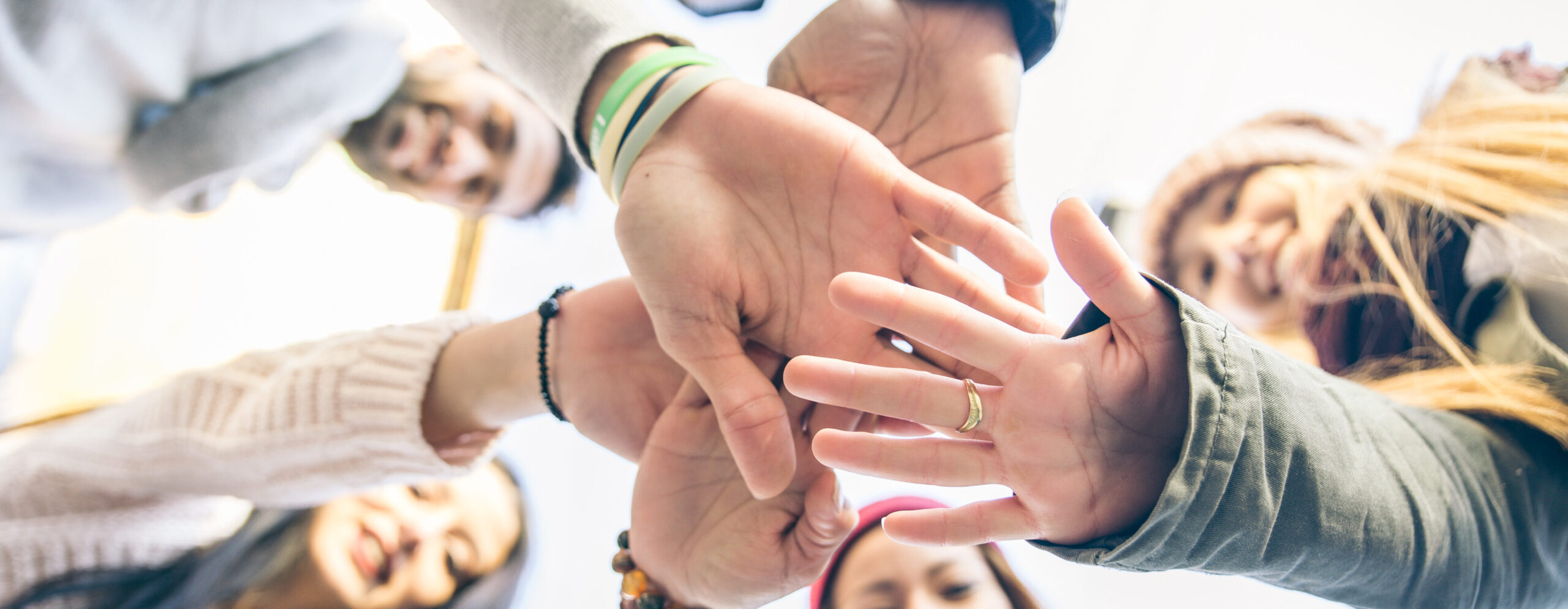
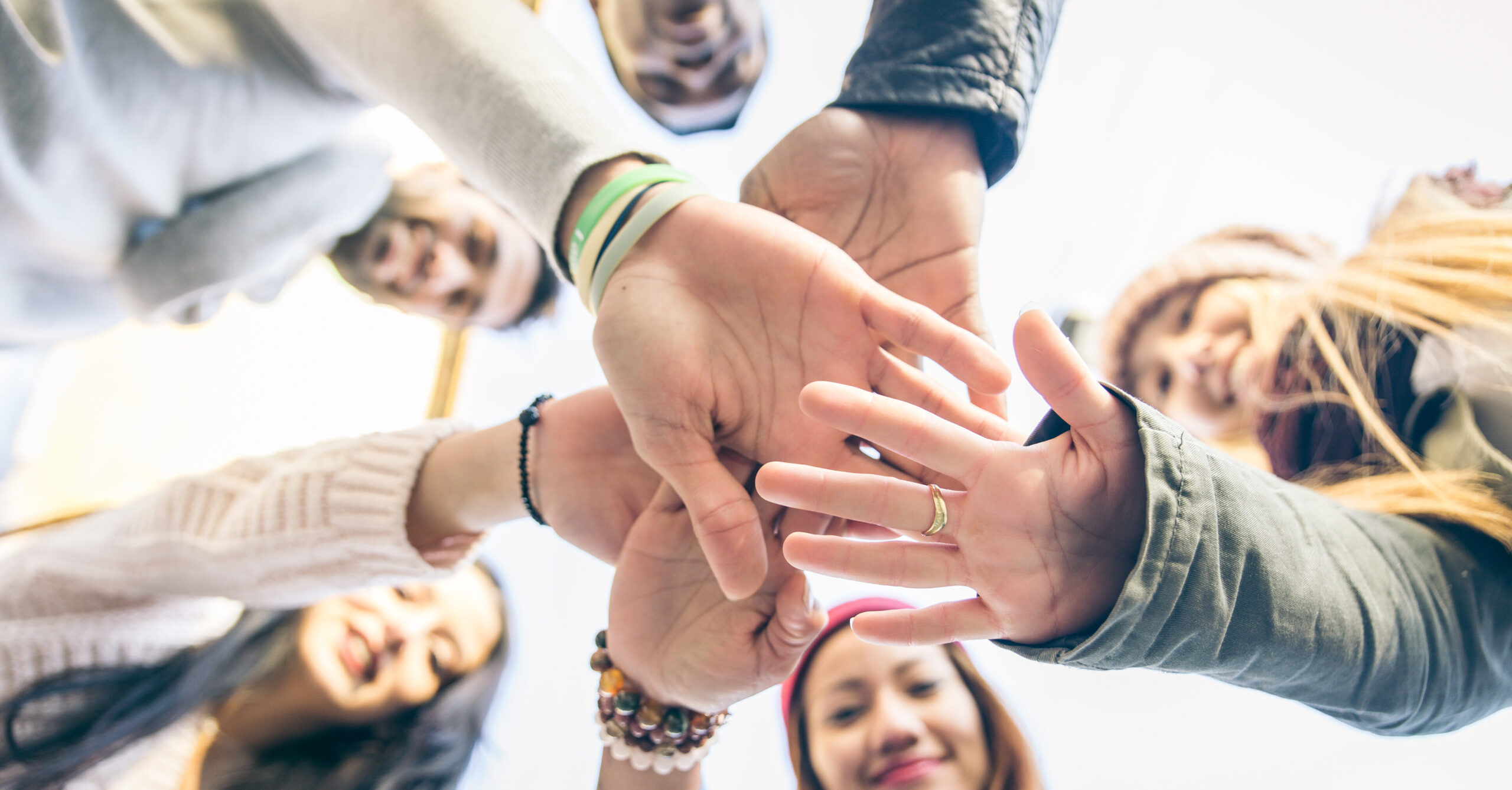
我的个人经历涉及到我的心理健康曾经不太好,这是我必须去看医疗提供者来谈论的事情。
在成长过程中,我一直认为心理健康是我自己必须独立处理的事情。但是,我意识到确实有一些事情你可以找到其他人来帮助你,并且他们可能会给你很多洞察力来帮助你应对这些问题。
有一些事情确实会触发我对自己的心理健康状态不好的认识。我认为动力是我特别留意的一个方面,但我努力克服这些问题,比如确保我和人们见面。我觉得运动是我生活中的一大部分。我参加了一个LGBTIQ羽毛球俱乐部,能够去那里打球,并且在不涉及酒精的环境中玩耍。我觉得很多时候,当酷儿或同志们聚在一起时,往往会涉及大量的饮酒。这显然可能导致过度饮酒。对我来说,能够成为一个社群的一部分,而且在一个不仅仅围绕着那种社交关系的环境里,对我来说真是一个很
“这确实让我重新认识了自己的酷儿特质,并将其与我的亚洲特质结合起来”
好的机会,我不仅能够认识到很多我不认识的新朋友,也能够逐渐了解这些人。这是一个非常有组织性的环境,我可以每周去一次,最终我可以认识到更多的人。这也是一个非常多元文化的俱乐部,所以有来自世界各地的人,特别是亚洲。羽毛球在亚洲非常受欢迎。这真的让我重新连接了我的酷儿身份,同时也能够结合我的亚洲身份,看到很多如何做到既是亚洲人又是酷儿或同志的例子。
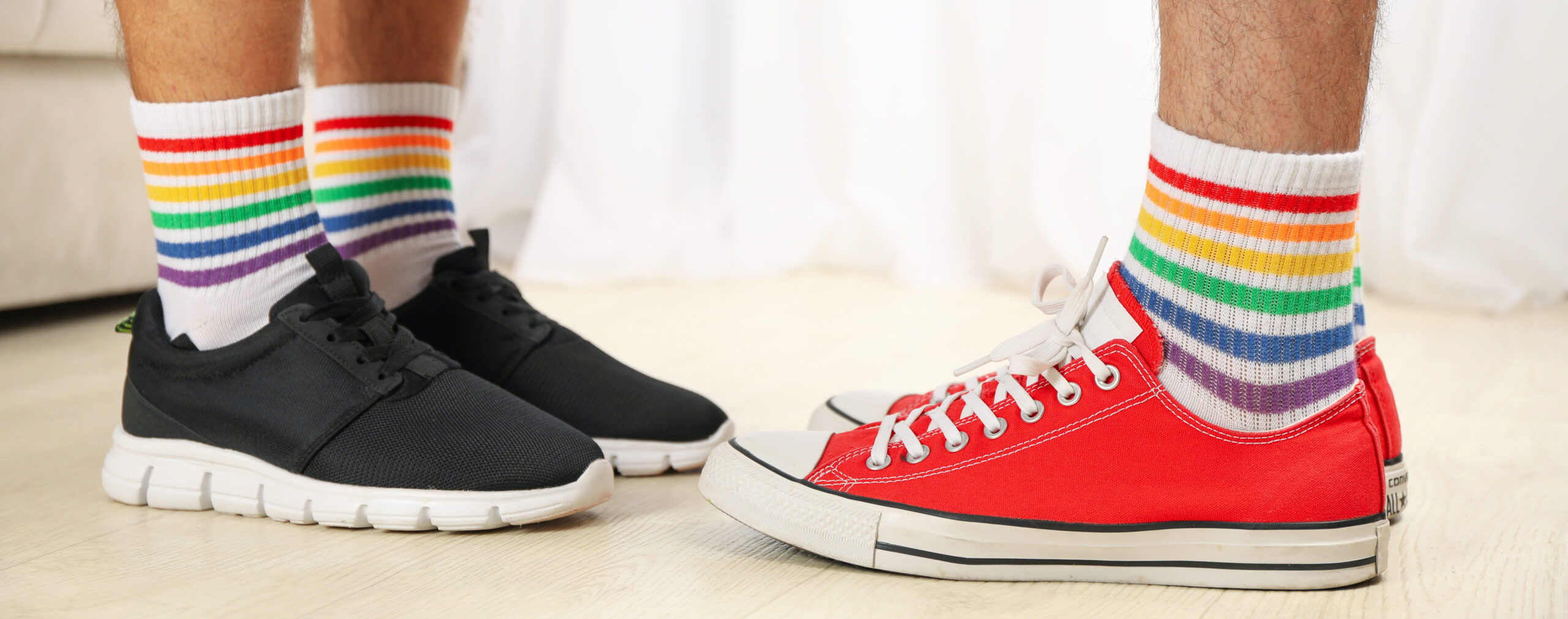
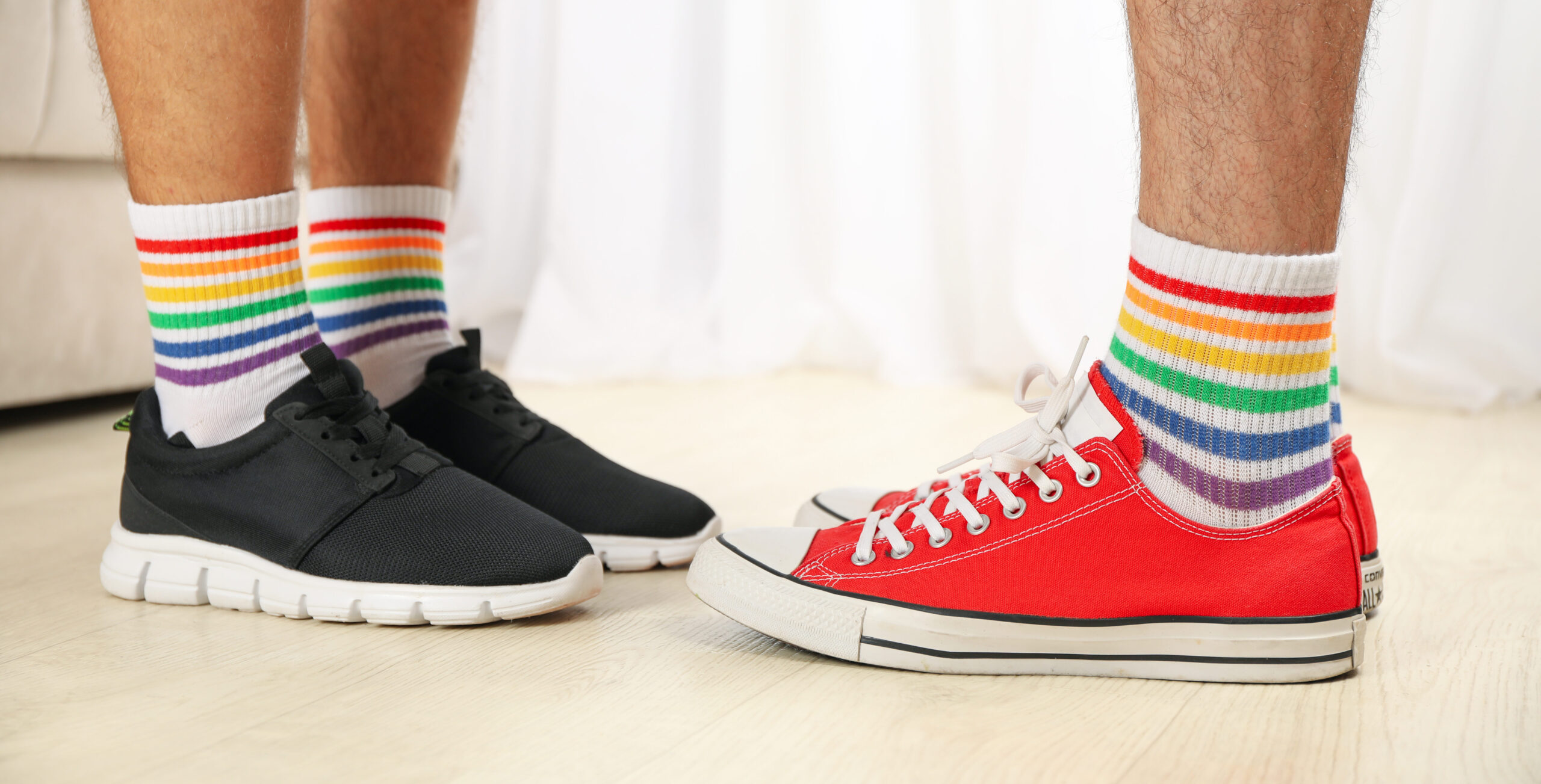
如果有人在华裔柬埔寨社区中遇到负面的心理健康问题,并且他们是酷儿,我会建议找到社群是非常重要的。我认为找到那些实际上能够理解你的人是非常重要的,那些有着共同生活经验的人。我想这就是很多人称之为所选择的家人。我知道显然你有你的血缘家庭,但他们并不一定理解你所经历的,特别是与作为酷儿有关的经历。我强烈建议你和某人谈谈。我认为能够在生活中有那些你信任并且可以分享事情的人是非常重要的,最终我认为与你的全科医生或医疗提供者建立良好的关系是非常重要的,这样你就可以有诚实的讨论,不会有任何对这些事情的偏见,并且你可以得到你需要的帮助。
